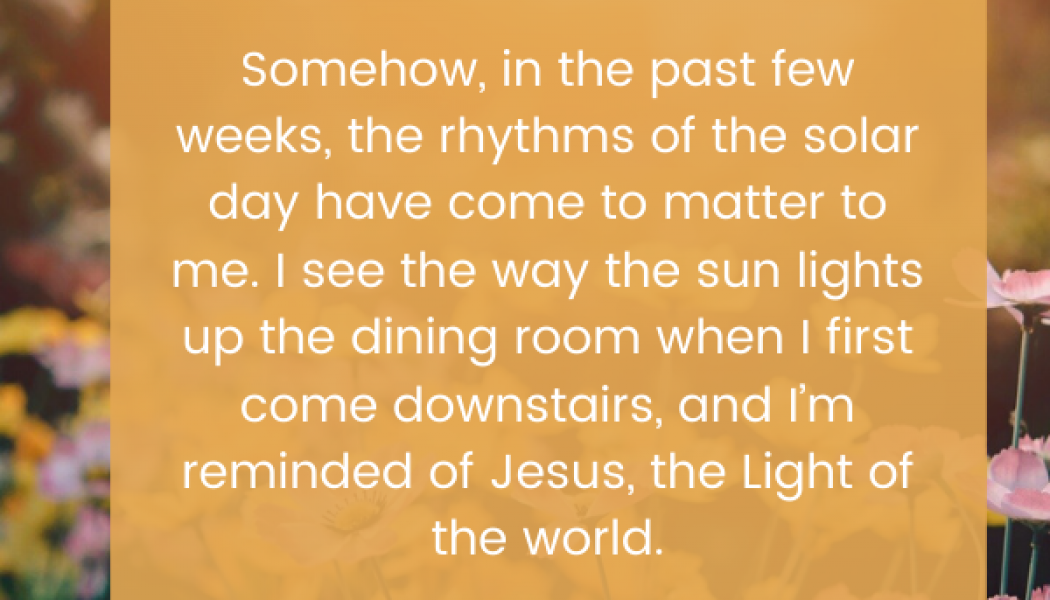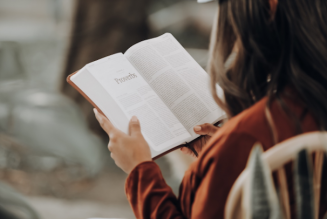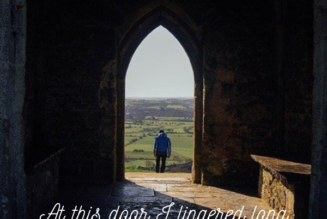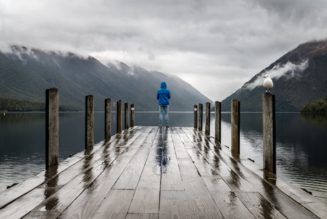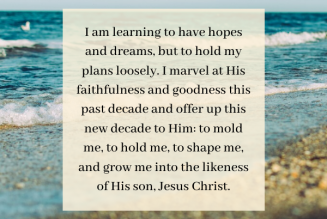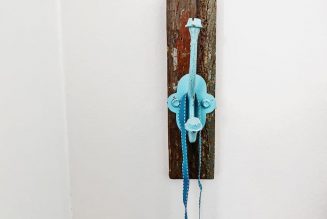What was the rhythm of my days, in the Time Before? I can hardly recall. There was an alarm clock, I know—the same 1992 Sony Dream Machine that still sits, silent now, on my bedside table—and I used to set it for 6:15. There was blundering into the shower and wrapping a dish towel around the coffee grinder so I wouldn’t wake the rest of the house and sitting down to a predawn bowl of yogurt before rustling my kids out of bed. There was driving, lots of driving: to work, to school, to soccer and baseball and church and piano and the grocery store and the winter band concert and the zoo. There was food to be cooked and dishes to be washed and laundry to be folded, and I suppose there was a rhythm to it, but it didn’t feel like a rhythm. It felt like a rush.
And then we entered Quarantine Time, and everything screeched to a halt. It was as if we’d fallen into a rift in the space/time continuum where the very concept of time had no meaning at all. Hours went by in which I only scrolled endless headlines on my phone, eyes wide at the terror of it all. There were whole days in which I did nothing at all. The last two weeks of March were an age unto themselves.
But now—innumerable days of lockdown later, as our county begins to gradually reopen, but my family is still cautious about venturing out—we’ve settled into a new kind of routine. Now, I find myself noticing rhythms in ways I’ve never had time to notice before.
I’m noticing, first of all, the rhythm of light and dark, sun up and sundown. The way we lived Before, the position of the sun in the sky wasn’t important. The number on the clock was only a guide to which activity we were supposed to run off to next. I was never in one place long enough to watch patches of light slide across the floor as the earth turns ever east.
Somehow, in the past few weeks, the rhythms of the solar day have come to matter to me. I see the way the sun lights up the dining room when I first come downstairs, and I’m reminded of Jesus, the Light of the world. I notice the round shadow of the patio umbrella when I take my lunch into the backyard. I appreciate the bluing of the twilight as I pull the curtains and call my children for yet another family movie night. Each day has a beginning, a middle, and an end, all dictated by planetary motion. Of course, I knew this, Before. But now, I have eyes to watch it happen.
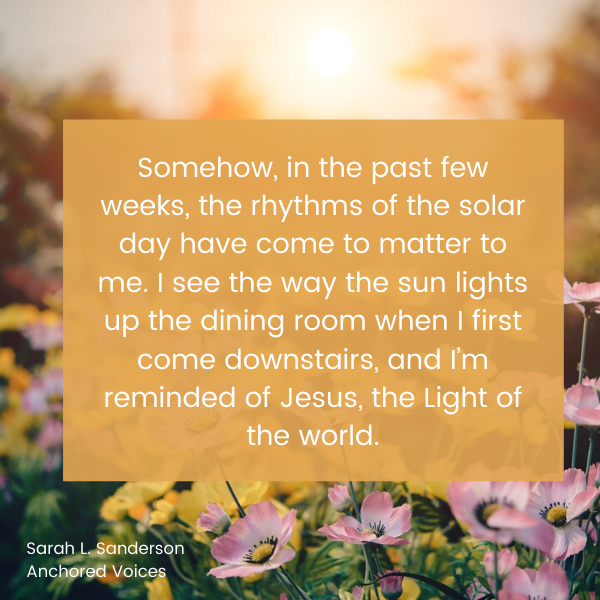
The other kind of rhythm that’s become important to me lately is the kind I make for myself. Now that my home is no longer a physical refuge away from my employment—now that all my work lies waiting for me around the house—I’m feeling driven to set aside time for rest, instead of space. I’m rediscovering the ancient Judeo-Christian practice of Sabbath-keeping.
Many people probably associate Sabbath with the community depicted in Netflix’s Unorthodox, or with the Sunday closures of companies like Chick-Fil-A and Hobby Lobby. But at its core, the practice of setting aside one day in seven isn’t about rules and restrictions. It’s about soul care. As Genesis 2:3 tells us, Sabbath is rooted in God’s own rest: “And God blessed the seventh day and declared it holy, because it was the day when he rested from all his work of creation.” (NLT) In his book Sabbath, Dan Allender argues for a practice of weekly rest driven less by regulation and more by following our bliss. “The Sabbath is an invitation to enter delight,” writes Allender.
So, that’s what I do. Thankfully, I still have work, both paid and unpaid. But on Sundays, I don’t do it. Instead, after worshiping God by participating in my church’s online service, I worship God with my mind by working the crossword puzzle. I take bike rides. I sit around and eat my daughter’s fresh-baked chocolate chip cookies. I don’t even do the housework I’ve cooked up for myself lately, like painting my bedroom or reorganizing the garage. I find, now, that during the week, I look forward to Sundays; on Sundays, I look forward to the rest of the week. It is a rhythm that gives shape to my days.
My family is privileged, of course, that the anxiety of this time has remained “out there.” We haven’t lost anyone close to us; we haven’t gotten sick; we haven’t lost our jobs. Even so, the anxiety out there has heightened the anxiety we feel in here. There are still days when I lose hours to doomscrolling. There are still tantrums and tears. And when it all seems more than I can bear, when the latest headline makes me bite my lip with worry—I am learning to look up from the phone, and search for the nearest patch of Light.

Sarah L Sanderson is a writer, speaker, pastor’s wife, and mom of four. Find more of her work—including updates on the memoir she is currently writing about abuse, mental illness, faith, and her great-great-great-great-great-grandmother—on www.sarahlsanderson.com, or follow her on Facebook, Instagram, or Twitter.
